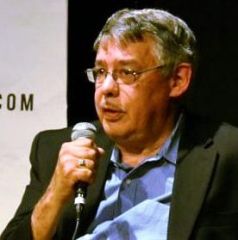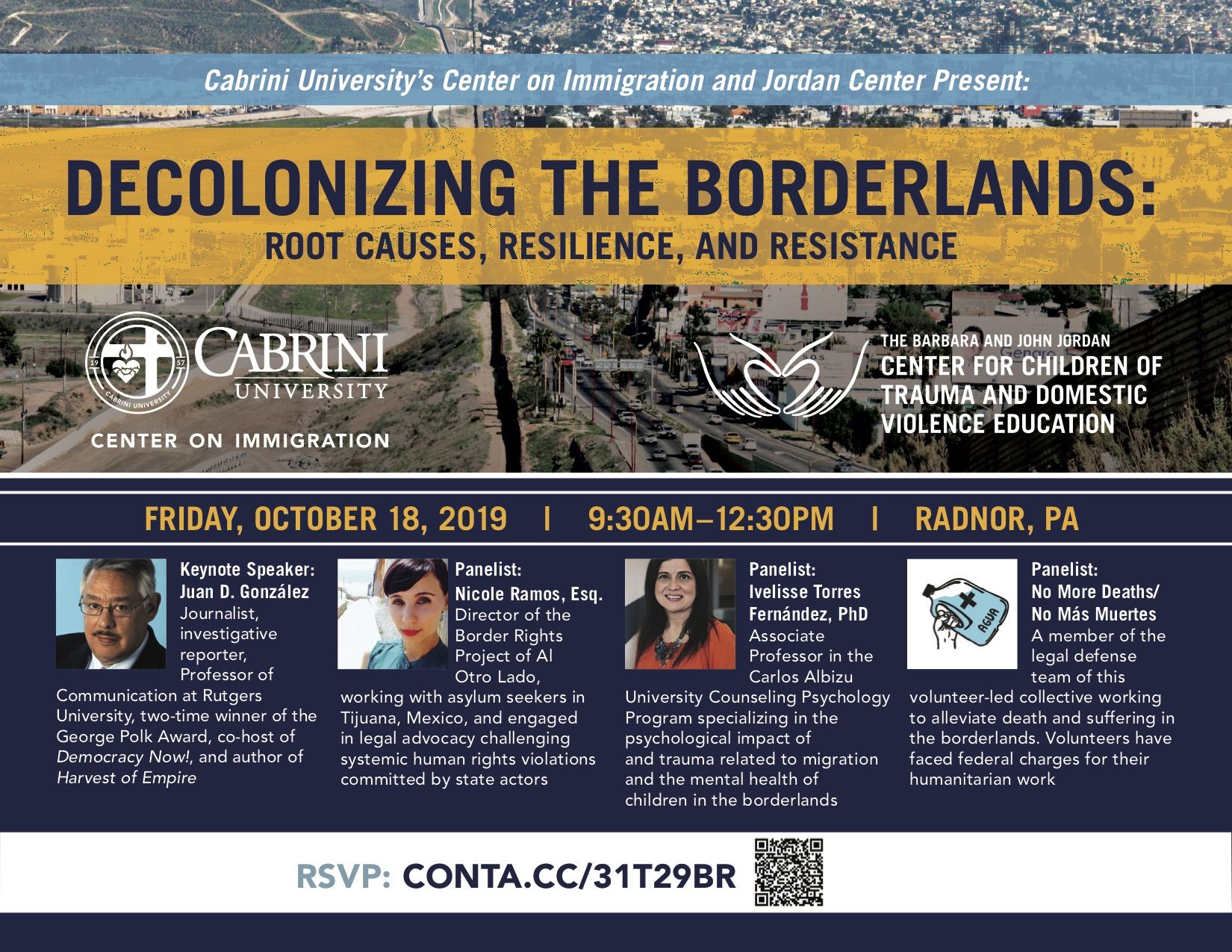Juan D. González, professor of professional practice in journalism and media studies at
Rutgers School of Communication and Information, will be leading the Decolonizing the Borderlands symposium on Friday, Oct. 18 from 9:30 a.m. – 12:30 p.m. in Grace Hall.

Organized by Cabrini’s Center on Immigration and the Barbara and John Jordan Center for Children of Trauma and Domestic Violence Education, this symposium will focus on the root causes, resilience and resistance of those in migration at the U.S./Mexico border. This symposium will also focus on the denial of legal rights that migrants face as well as trauma many experience.
According to the American Immigration Council, President Trump’s administration has issued an interim rule of an “Asylum Ban,” meaning that this ban became effective immediately. This ban is denying asylum entry to the U.S. to all individuals from another country if they had not sought protection in the first country they come to. Thus, someone from Guatemala must apply to Mexico for asylum rather than passing through Mexico and applying in the United States.
Thousands of children have been separated from their families at the U.S./Mexico border as a result of this Asylum Ban. The American Psychological Association found that separating children from their families and forcing them to live in an institutionalized environment can cause irreversible damage and changes to the brain.
The keynote speaker, Juan D. González, is a journalist and investigative reporter. He is the screenwriter of Harvest of Empire, the co-host of Democracy Now! and a two-time winner of the George Polk Award.
Three panelists will be speaking at this symposium, as well. The first panelist is Nicole Ramos, Esq., director of the Border Rights Project and Refugee Services at Al Otro Lado in California. Ramos worked closely with those seeking asylum in Tijuana, Mexico, and focuses on legal advocacy, challenging violations of human rights.
Dr. Ivelisse Torres Fernández, associate professor in the Carlos Albizu University Counseling Psychology program, will also be one of the panelists. She focuses on the psychological impact of trauma in migrants at the border as well as the mental health of children at the border.
The third panelist will be a member of the legal defense team for No More Deaths/No Más Muertes. This is a volunteer-led effort works to decrease death and torture at the border. Some of their volunteers have faced federal charges for their advocacy work.
The guests will be speaking from 9:30 a.m. – 11 a.m. with questions for the panelists to follow until 12:30 p.m.
RSVP for this event here.




